How to Indicate a Sabbatical on Your Resume
This post may contain affiliate links and Corporette® may earn commissions for purchases made through links in this post. As an Amazon Associate, I earn from qualifying purchases.

How do you indicate a sabbatical or other gap on your resume, whether to smell flowers, travel, write, or more? Reader M wrote in, wondering:
So: any recommendations for indicating a sabbatical/career break on the resume? I am taking this time to volunteer (and travel some, but will emphasize volunteering) and I am proud of that. Face to face it has been easy for me to explain this. My job wasn't working out, I had some savings, had always wanted to volunteer, and so I quit. How do you think I should indicate this current volunteering time on the resume?
Great question, because I think more and more people are taking sabbaticals. I'm curious to hear what the readers say, but some notes from poking around the Internet:
What is a Sabbatical?
“Sabbatical” can mean a lot of different things to different people, and hiring managers will raise an eyebrow at it — apparently some people have lied and used “sabbatical” to indicate time spent job searching or even incarcerated.
From a recent thread on Ask a Manager, you can see that some people think “sabbatical” only applies if it's an academic pursuit or you are “still employed by your place of business and on their payroll;” other people thought it meant you are leaving your current position for a period of time but that you plan to return to it.
{related: why you should apply to jobs even when you don't meet the job “requirements”}
Meanwhile, over at Oprah.com, they define a sabbatical as “a planned, focused job pause in which an individual takes time to rest, travel, volunteer, learn a new skill or fulfill a lifelong dream before returning to work,” which would have been closest to my own definition before I started looking around.
So where possible, either expand “sabbatical” to include a few sentences about what you were doing, or use a more precise phrase than sabbatical.
{related: how long your resume should be}
How to Indicate a Sabbatical On Your Resume
In this case, if the rest of your resume has positions listed as [Job Title], [Company], I would put “Volunteer, [organization through which you volunteered]. If you're learning relevant skills to your next job (or your next career), I would use a sentence or two (or a few bullet points, whatever fits best with your resume style) to describe which skills you gained and how.
Try to use strong words like “managed,” “researched,” “taught,” etc. Yes and Yes has a few more suggestions for what to say on your resume.
I'm curious to hear what readers would put if they were just traveling for an extended period, though — I might put “Travel, Jan. 2013 – May 2013: Countries A, B, C, D, E, and F” in a one-line spot, probably with “other experience” or “other interests.”
Ladies, have you taken a sabbatical — and how is that time represented on your resume? Have you ever interviewed someone who had taken a sabbatical, and what did you think?
{related: the easy way to keep your resume updated}
Psst: These are some of our favorite books if you're considering changing your career:
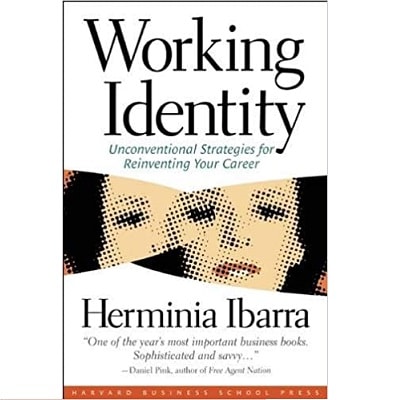
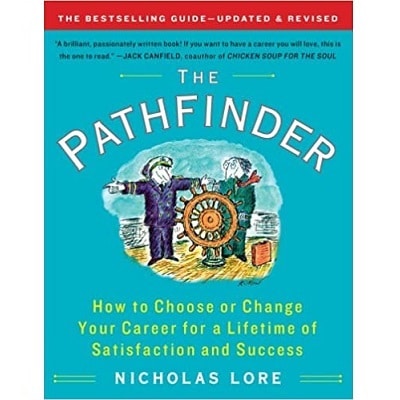
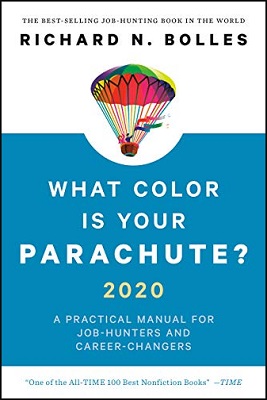
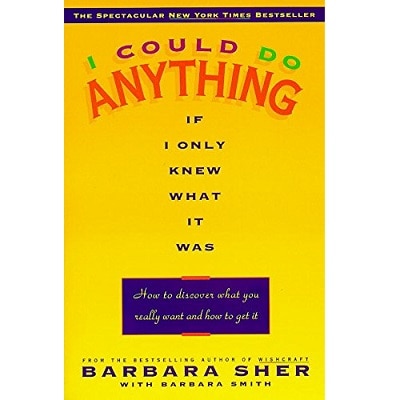
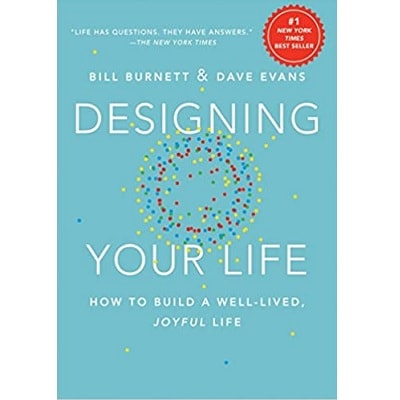

Chicago shopping TJ
I will be in Chicago early next week for a conference. Coming from a smaller city, I am hoping to have some time to check out some of the stores that we don’t have. I assume I should head to Michigan Ave, but where? Should I just be checking out the larger than I’m used to Nordstrom and BR, or are there designer-specific stores I should be visiting (I see both Tory Burch and Kate Spade have stores).
I’ll also take restaurant recommendations if you have them. TIA.
Restaurant recommendations:
Purple Pig, on Michigan at Illinois
The Gage, on Michigan at Monroe
Enjoy your trip!
I suggest checking out Oak St. as well as Michigan Ave. It’s off the northern end of Michigan, and it has some very nice boutiques and higher-end stores.
I would suggest shopping on State Street between Lake and Jackson. There is a Zara, an H&M, a Nordstrom Rack, a New York and Company and a lot of other good stores.
I’m wrapping up a “sabbatical” now, and have tended to explain the gap in my cover letter as opposed to my resume. Part of that is because I took the time more to rest/read than do organized volunteer work/travel/structured things. I’ve been getting interviews on positions I’m interested in, and it hasn’t been much of an issue.
Expanding on the OP’s question, how would you indicate a “mish-mash” of jobs on a resume? I am into my first post-law school job, but for two years before law school, I worked at Job A for 6 months out of the year (seasonal work, not at all relevant to anything I will be doing in the future). For the six months in the middle (and several months on either end), I (1) travelled a couple of weeks at a time to random places; (2) worked part-time at a total of three barely above minimum wage jobs; and (3) spent a lot of time not working, but hiking, biking, enjoying life, etc.
I don’t want to take up too much room on my resume detailing the above, but it is very clear that Job A does not equal year-round employment.
Will someone looking at my resume now, 5 years later, care if I do not go into more detail than listing Job A? Before my current job, my resume simply said: Summers 20xx and 20xx: Job A. Thoughts?
Whatever you did before law school (or during law school if it was not law related) is not relevant and you should leave off entirely.
Agreed.
agree. It should just be your law school clerkships/summer positions
In this particular case, I agree, but more generally, I think that if someone had a “real” career prior to going to law school, I wouldn’t leave it off.
Yes. Susie’s advice is far to sweeping. I frequently review resumes for my Biglaw firm and look very favorably on any sort of sustained pre-law school work experience (including part-time work study jobs).
I think that’s true in this poster’s case, but it is not always true. If you worked for several years before law school (or even just a year or two in a professional position), you should put it on your resume.
I had a pretty killer non-law-related overseas job for two years prior to law school, and I know that it helped me get jobs during and after law school. It directly informed my choices with respect to what I wanted to do as a lawyer and gave me a substantive foundation that employers found appealing (which they told me after they hired me).
I interview and hire people now, and while it’s not a deciding factor, it makes a difference, depending on what the job was. I don’t much care if someone was a legal assistant in Biglaw for two years, because that feels like a placeholder to me, but yes, I’m interested in people’s pre-law school lives.
Thank you for the replies!
I really agree with Kat’s advice to give some explanation on what you were doing on the sabbatical – especially if it is something you accomplished during that period that you’re proud of.
When I worked for a management consultancy, quality checking people’s resumes in the database, this information (and hobbies) would go into the database for the management consultants on a similar line as the the actual career stuff. Of course the management consultants put more emphasis on the career stuff, but volunteering, competing in a sporting event, or taking a course completely unrelated to your career, also tends to count.
Looking forward to comments on this thread, as I have several years of taking care of family to contend with on a resume/cv. The big blowup that started in Jan has finally settled down, but it looks like I’ll continue to have a couple hours a day dealing with it, so I’m still moving really slowly on job apps/networking.
I’m glad that whatever blew up in January is starting to calm down.
Thanks! I had no concept it would be such a major thing; we are just now righting ourselves again.
I have learned a lot during this whole thing and all this think time is getting me much more focused in what I want to do and much more organized than I’ve ever been. It’s hard to figure out how to reflect that in an application (either resume or cover letter) without sounding like that old joke about SAHM being domestic engineer/chef/chauffer/manager… I’ve done a few professional activities–conference presentations and edited a newsletter–but not enough that anyone would think that accounted for all my time.
Since we’re talking resumes…
(1) I was laid off in 2008 during the legal meltdown. It took me about 9 months to find a new, permanent position (that I still hold). In the interim, I had one contract position lasting 4 months (with a reputable local firm) and one lasting 1 month (with a solo practioner – I had almost no work and have since learned that this individual is of questionable character).
Do you think I can leave that 1 month stint off my resume? I wasn’t employed by the solo directly (through a contract agency) and I did almost no work and gained no skills.
(2) Do people still put hobbies/interest/accomplishments on their resumes? I’ve recently reviewed many resumes with this line at the bottom. My understanding was always that this was a good place for significant accomplishments (Completed 3 Ironmans, Black Belt in Brazillian Jiu Jitsu, Violinist in local symphony, etc), but that throw-away items like “reading, museums, cooking” etc were a waste of space. Thoughts?
I think you can leave the 1 month stint off your resume.
I’ve seen a resurgence of the “interests” sections on resumes as well. I think that if you’re going to list interests/hobbies that they should be specific (not generic ones like cooking), and also ones that you are prepared to talk about.
I too would leave off the 1 month stint. I similarly leave off a 2-3 month gig I did before law school as is isn’t entirely relevant to my career, but I keep the actual 2+ year position in the same professional capacity on there for now.
side TJ–once we’re out of school, is experience supposed to go before education? or do I keep it after, and simply streamline the education descriptions (remove all the activities)
My law school career office said put expereince above education as soon as you have a solid job (i.e. it’s a career position not contract, and you’ve been there a significant amount of time, e.g year+).
I like seeing an interests section on a resume, even if the items are somewhat generic sounding. It helps me get sense of what the person is like outside the office and often gives me something interesting or fun to ask about during the interview.
I have an interests section on my resume, but I’m only a few years out of school, so it’s not taking space from anything more important. I don’t include things like reading, travel, or knitting, but I do have hobbies that are more unusual and might interest someone reading it–robotics, the instruments I play, swing dancing, and fencing. Some, like robotics and fencing I don’t do currently, because I’ve moved away from the groups I was involved in, but I could see myself going back to these, so I don’t think it’s inappropriate to list them.
Relevant to my interests — I do not know how to explain a remitting/relapsing-type disability that is not MS on my résumé, especially since there are lengthy spans of time when I haven’t been pursuing education (haven’t been able, and then my family went kaboom). Pretty sure I should just go through agencies that deal with this kind of thing with the time comes, but if any of you have any suggestions, I am open to hearing them.
I work in tech and on the West Coast, so probably a slightly different attitude than other areas… but I took a year off and did nothing but travel. And not even good, educational, volunteering travel, but instead basically just bumming around Europe and SE Asia and having a great time. I didn’t make any mention of it on my resume, just had a gap. It always came up in interviews, obviously, and I passionately and enthusiastically described how it was something I had always wanted to do, and so I did it, and it was great. My stock explanation included: I realized that the job I was at wasn’t for me, and I had always wanted to travel. I was at a perfect point in my life to take some time and go travel, so I did some financial planning, stayed at the job I hated a little longer than I would have otherwise, and then took off when the time was right. I never got any negative reaction to this and mostly had a lot of people say “That sounds AWESOME!” I think the key is to make it clear that this is something you wanted to do and planned extensively for – not that it was something you “wound up” doing. Also, whatever you wind up doing, describe it with passion and enthusiasm – don’t act like it’s something that you’re sort of ashamed of.
I finished a six month sabbatical of my own in January. I was completely honest in interviews: I had been working a ton of hours in a job I did not enjoy, and I needed to take a break before it impacted my performance and my sanity. I did volunteer work during my time off as well. I put the volunteer work on my resume and emphasized it in cover letters and interviews (so no one thought I sat at home in comfy pants for six months, although I dud a fair amount of that). I also told potential employers that I used the time to think about what I really wanted from my career, which is why I was so excited about their company/this opportunity/their focus on X.
A lot of people have non-voluntary breaks in employment these days, I don’t think a gap would raise eyebrows, especially if you can cover it with volunteer work, travel, family, school, etc. I have a friend (former coworker at the same firm I left) who quit and took a year-long trip around the world, and she listed it on her resume. She completely changed careers, though (consulting to nursing), so it even worked as something of an asset to set herself apart when interviewing.
If you have a “real” sabbatical, paid (even half-time) by an employer, it should appear as a bullet point or other descriptive content underneath that particular job. Otherwise, I think it’s borderline deceptive to use the word sabbatical, and I’m not at all surprised that these “untethered” sabbaticals are red flags.
I think gaps are fine, provided you did something during your time off (travel, take care of family, volunteer, etc.) like so many have mentioned here, and are able to spin your activities so it looks good to future employers.
Given the current economy, however, it should be something planned & thought about, if at all possible. Of course, it depends on your industry and the current job market, but taking a break from the workforce may make it harder to re-enter later, as evidenced by a relatively recent Atlantic article: http://www.theatlantic.com/business/archive/2013/04/the-terrifying-reality-of-long-term-unemployment/274957/#disqus_thread
…a question i’m more interested in: how to get a sabbatical from a traditional employer? who else is tired and wants a break?? ;)
Ladies !
Well I was a lady before my operation. I took sabbatical in order to be able to sleep in the morning (2 YEARS). Shall I put that on my cv ?
I dealt with this after living overseas with for my husband’s job for three years. I spent that time doing a freelance/consulting gig for the job I had left behind, picked up a few new freelance writing gigs, and did some work for the local US consulate.
I ended up putting it on my resume kind of like this:
EXPATRIATE SPOUSE
-consulting gig details #1
-consulting gig details #2
-freelance writing details
-extensive travel throughout the Asia-Pacific region
SUPER GURU
-previous job
AWESOME ROCKSTAR
-job before that
(you get the picture)
So I basically created a job title of Expatriate Spouse. I hated putting myself in the “spouse” box, but it put out there really clearly what I wanted to say and it was that version of my resume that got me the most interviews and in the end a job offer.